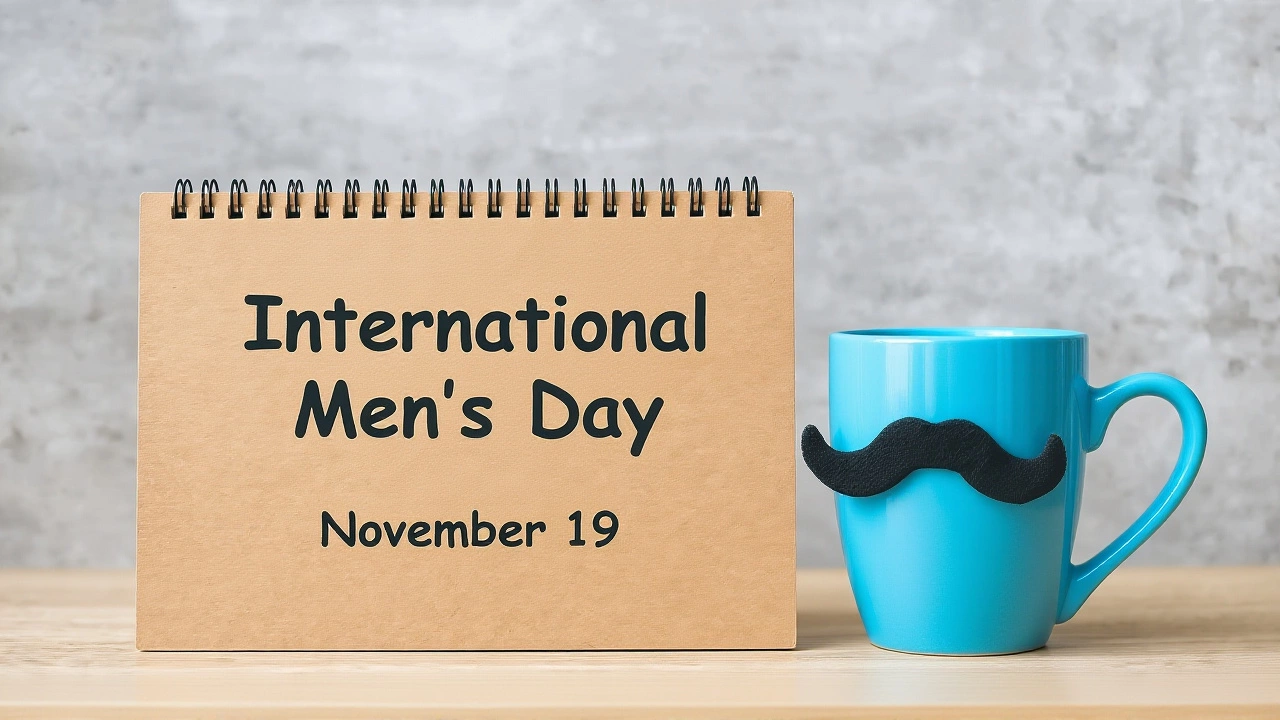On November 14 and 15, 2025, Woodensure published a blog post titled "International Men's Day: 10 Unique Gift Ideas to Show More Respect," quietly sparking a conversation about how everyday gestures can reshape cultural attitudes toward men. The article, authored by the organization’s editorial team without individual credit, doesn’t just list presents—it argues that choosing the right gift is a form of social repair. In a world where men are still often told to "just be strong," Woodensure is pushing back by saying: recognition matters. And it’s using consumer behavior as its tool.
Why Gifts Are More Than Just Things
Woodensure’s core message is simple but radical: men deserve to be seen—not just for what they do, but for how they feel. The blog opens by stating, "Men deserve recognition too—recognition for their dedication, emotional strength, resilience, and the countless responsibilities they carry." It’s not a plea for pity. It’s a call to acknowledge the invisible labor: the father who wakes up early to fix the car before work, the brother who hides his anxiety to keep the family calm, the friend who never asks for help but always shows up.
The organization ties this directly to the origins of International Men’s Day, which was founded to honor men’s contributions to family, community, and society while confronting issues like mental health stigma and rigid gender roles. Woodensure doesn’t just reference the day—it positions its gift list as an active response to it. "Gifting becomes an excellent way to express appreciation," the article claims, suggesting that consumer choices can be acts of cultural change.
The Two Gifts That Say It All
Among the ten recommended gifts, two stand out—not because they’re expensive, but because they’re quietly revolutionary.
First, wall art. "If he values creativity, minimalism, travel, or unique designs, this gift will speak to him emotionally," Woodensure writes. It’s not about decoration. It’s about validation. For many men, expressing taste, emotion, or individuality through art is seen as "soft." But Woodensure insists: that’s the point. Giving wall art says, "I see your inner world, and it matters."
Then there’s the shoe rack. "A simple utility item, but it is an essential part of keeping an organized home," the article notes. On the surface, it’s practical. But Woodensure frames it as a statement: "Ideal for men who value cleanliness, structure, and neatness… perfect for men who love gadgets." This isn’t just about tidiness. It’s about honoring the quiet pride men take in order, control, and reliability—traits often dismissed as "boring" or "unemotional." By elevating a shoe rack to a meaningful gift, Woodensure flips the script. "Choosing meaningful gifts for men helps break the stereotype that they are ‘simple’ or ‘don’t need much,’" the post declares. "The truth is—they do appreciate thoughtful gestures and acknowledgment."
Who This Is For (And Why It Matters)
Woodensure explicitly targets fathers, partners, brothers, friends, and colleagues. That’s intentional. These are the men society tells us to take for granted. The dad who never complains. The husband who handles the bills and the car repairs. The friend who always laughs off his own stress. The colleague who stays late without fanfare.
The blog’s tone isn’t performative. It’s intimate. "This year, take a moment to say: ‘Happy International Men’s Day — you matter,’" it urges. No grand speeches. No social media posts. Just one quiet sentence, spoken with sincerity. That’s the real gift.
And here’s the twist: Woodensure isn’t selling products. It’s selling a mindset. There are no prices. No affiliate links. No brand names. Just ideas. The organization’s goal isn’t to drive sales—it’s to shift perception. By linking consumer behavior to emotional recognition, Woodensure turns a commercial holiday into a moment of cultural reflection.

The Bigger Picture: Breaking the Silence
For decades, men’s emotional needs have been sidelined under the guise of "toughness." Men die by suicide at nearly four times the rate of women in the U.S. and UK. They’re less likely to seek therapy. They’re more likely to bottle up grief, fear, or exhaustion. Woodensure’s blog doesn’t mention these stats—but it doesn’t need to. The message is embedded in every suggestion: you don’t have to be silent to be strong.
By recommending gifts that invite emotional expression—art that reflects inner worlds, organizers that honor discipline, thoughtful notes that say "you matter"—Woodensure is quietly dismantling the myth that men don’t want or need emotional connection. It’s not about giving more. It’s about giving differently.
What’s Next?
Will this blog change anything? Maybe not immediately. But it’s part of a growing wave. Brands like Dove, Gillette, and even Men’s Health have begun pushing narratives that challenge traditional masculinity. Woodensure’s approach is subtler—less about activism, more about everyday empathy.
Look ahead to 2026. Will other publishers follow? Will retailers start packaging "emotional recognition" as a product category? Will men feel safer saying, "I need help," because someone gave them a gift that said, "I see you?"
One thing’s certain: the conversation has started. And it’s happening not in boardrooms or protests, but in living rooms, over coffee, and yes—on a blog post published on November 14, 2025.
Frequently Asked Questions
Why does International Men’s Day matter if we already have Father’s Day and other holidays?
International Men’s Day isn’t about replacing Father’s Day—it’s about addressing the full spectrum of men’s lives. While Father’s Day celebrates parenthood, International Men’s Day acknowledges men’s emotional labor, mental health struggles, societal expectations, and contributions beyond family roles. It’s a day to recognize men as individuals, not just as roles they play.
How can a shoe rack or wall art actually break gender stereotypes?
These gifts challenge the idea that men only want tools, tech, or sports gear. A shoe rack honors discipline and order—traits often undervalued in men. Wall art invites emotional expression, countering the myth that men don’t care about aesthetics or personal meaning. When a man receives these, it signals: "Your inner world matters, not just your productivity."
Why didn’t Woodensure include prices or product links?
By avoiding commercial details, Woodensure shifts focus from consumption to intention. The goal isn’t to sell, but to inspire. This approach makes the message more powerful—it’s not about what you buy, but why you choose to recognize someone. It turns the blog into a philosophy, not a catalog.
Is this just marketing disguised as activism?
It could be. But that doesn’t make the message less valid. Even if Woodensure benefits from increased brand visibility, the core idea—men need emotional recognition—is backed by decades of psychological research. Sometimes, the most effective activism comes wrapped in a blog post, not a protest sign.
What should I say when giving one of these gifts?
Woodensure suggests: "Happy International Men’s Day — you matter." But the best words are the ones that feel true to you. Try: "I’ve noticed how hard you work, even when no one sees it," or "I appreciate how you handle things without complaining." Specificity makes it real. Generic praise fades. Personal acknowledgment sticks.
Can women benefit from this approach too?
Absolutely. The same principle applies: everyone deserves to feel seen. When we stop assuming what people need and start asking—or observing—we create space for deeper connection. This isn’t a gender war. It’s a human reminder: emotional recognition isn’t a favor. It’s a basic need.
